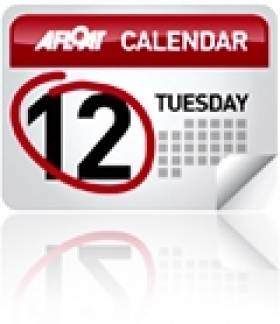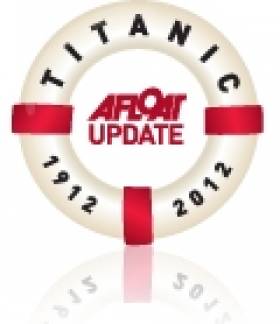Displaying items by tag: Fundraiser
A fundraising exhibition in aid of Co. Wexford’s five RNLI lifeboat stations will share in the proceeds from the event held in the Stella Maris Centre in Kilmore Quay on Saturday 26 and Sunday, 27 August.
The exhibition 'A Maritime History of Co. Wexford' will be hosted by Rosslare Harbour Maritime Heritage Centre and will feature displays from the maritime heritage centre. Also on display will be the John Power Collection with other contributors from around the county.
Admission to the exhibition in Kilmore Quay is free of charge and will be open on both days 11 a.m to 5.30 p.m.
People are asked to make donations during their visits while local businesses and groups are also being encouraged to support the RNLI fundraiser.
The fundraiser is to benefit the county’s two offshore lifeboats stationed at Rosslare Harbour and Kilmore Quay and three inshore lifeboats located at Courtown Harbour, Wexford and Fethard-on-Sea.
The exhibition will span a period of 200 years through artefacts, photographs, paintings, drawings and models of sailing ships, steamers and of course the lifeboats.
More from the Wexford People on the fundraiser which is also to feature the development of the Port of New Ross along with the building of the replica of Dunbrody which was built on the banks of the Barrow in 1998.
Maritime Museum Table Quiz & Wine Tasting Fundraiser
#TableQuiz- Have fun while raising funds for the National Maritime Museum of Ireland, Dun Laoghaire, where a Table Quiz & Wine Tasting event is to be held in the Eblana Club, next Thursday 10th October.
The evening event (starting at 7.30pm) begins with wine-tasting by Mitchells of Glasthule. An hour later the table quiz gets into action and the bar will also be open.
Eblana Club is located on Eblana Avenue which is off the town's Marine Road. Tickets cost €10 per person / €40 per table and payable at the door.
As this event is not currently on the NMMI's website, for further details email: [email protected] or tel: (01) 2143 964.
For other information about the museum which has a cafe, gift shop and library (members-only) plus opening times visit: www.mariner.ie
Fundraiser to Recreate Titanic's Last Meal
#TITANIC - Every seat has been snapped up for a special black-tie dinner in Galway next month that will recreate one of the last meals served on the Titanic.
Two menus recovered from the ship have provided the inspiration for the RNLI Galway lifeboat fundraiser, devised by self-described Titanic buff and culinary arts lecturer Noel Loughnane.
The extravagant 11-course meal, at €100 per head, includes such mouth-watering delights as filet mignon, foie gras, salmon with mousseline sauce and Calvados-glazed duckling - just as the ill-fated ship's first-class passengers would have enjoyed.
The Irish Times has more on the story HERE.































































